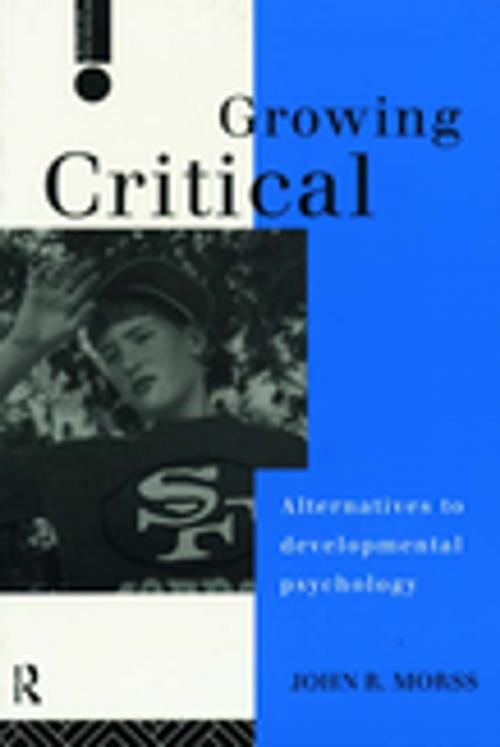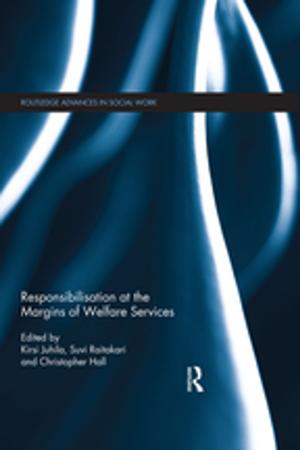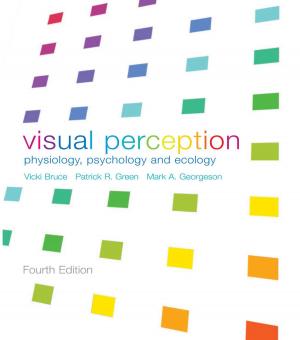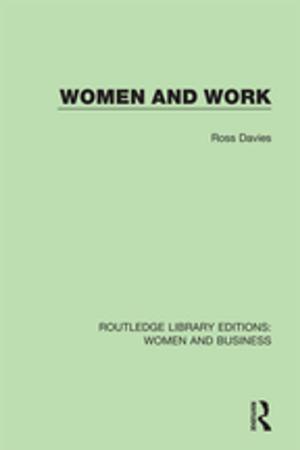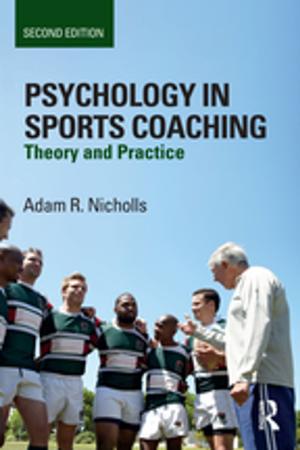Growing Critical
Alternatives to Developmental Psychology
Nonfiction, Health & Well Being, Psychology| Author: | John R. Morss | ISBN: | 9781134926909 |
| Publisher: | Taylor and Francis | Publication: | April 3, 2013 |
| Imprint: | Routledge | Language: | English |
| Author: | John R. Morss |
| ISBN: | 9781134926909 |
| Publisher: | Taylor and Francis |
| Publication: | April 3, 2013 |
| Imprint: | Routledge |
| Language: | English |
Growing Critical is an introduction to critical psychology, focussing on development. It takes a fresh look at infancy, childhood and adulthood and makes the startling claim that 'development' does not exist.
John Moss guides the reader from the early critical movements of the 1970s which gave rise to the 'social construction of development' through the wide range of more recent approaches. He looks in turn at Vygotsky's 'social context of development, at Harre's 'social construction', Marxist critique of development psychology, psychoanalytic interpretations of development, and finally post-structuralist approaches following Foucault and Derrida. He surveys the range of alternative positions in the critical psychology of development and evaluates the achievements of Newman and Holzman, Broughton, Tolman, Walkerdine and others.
Marxism, psychoanalysis and post-structuralism - as well as such movements as feminism - challenge our understandings of human development. Morss looks beyond the laboratory, to Marx and Freud, to Foucault and Lacan. What sets Growing Critical apart from orthodox psychology is the seriousness with which he has thought through the implications of these challenges.
Contemporary and 'reader-friendly', Growing Critical will be of value to both undergraduate and to advanced students, as well as to anyone interested in human development, in pyschology, sociology or education.
Growing Critical is an introduction to critical psychology, focussing on development. It takes a fresh look at infancy, childhood and adulthood and makes the startling claim that 'development' does not exist.
John Moss guides the reader from the early critical movements of the 1970s which gave rise to the 'social construction of development' through the wide range of more recent approaches. He looks in turn at Vygotsky's 'social context of development, at Harre's 'social construction', Marxist critique of development psychology, psychoanalytic interpretations of development, and finally post-structuralist approaches following Foucault and Derrida. He surveys the range of alternative positions in the critical psychology of development and evaluates the achievements of Newman and Holzman, Broughton, Tolman, Walkerdine and others.
Marxism, psychoanalysis and post-structuralism - as well as such movements as feminism - challenge our understandings of human development. Morss looks beyond the laboratory, to Marx and Freud, to Foucault and Lacan. What sets Growing Critical apart from orthodox psychology is the seriousness with which he has thought through the implications of these challenges.
Contemporary and 'reader-friendly', Growing Critical will be of value to both undergraduate and to advanced students, as well as to anyone interested in human development, in pyschology, sociology or education.
